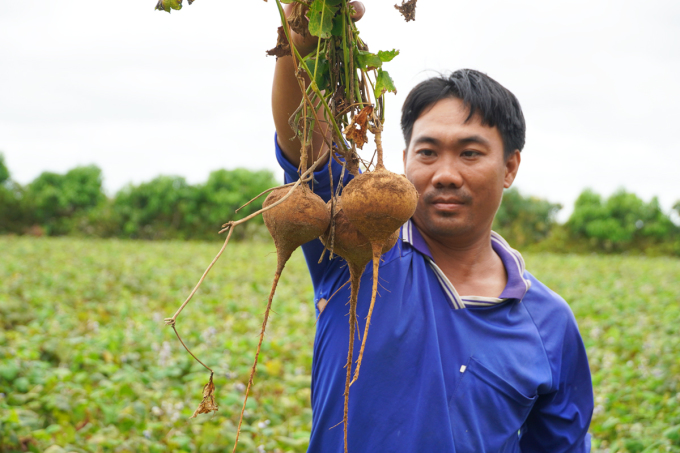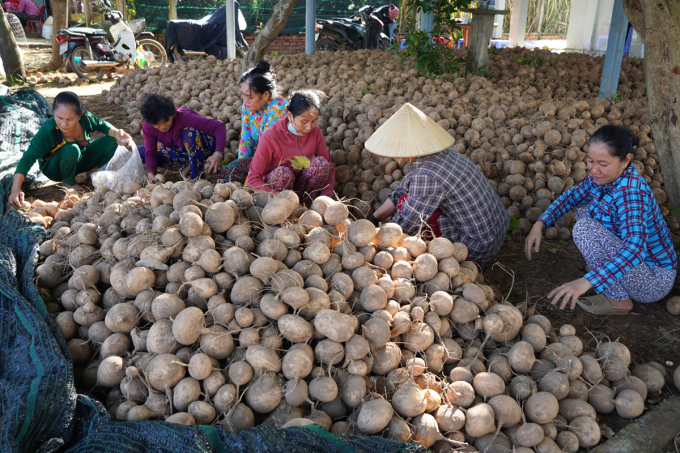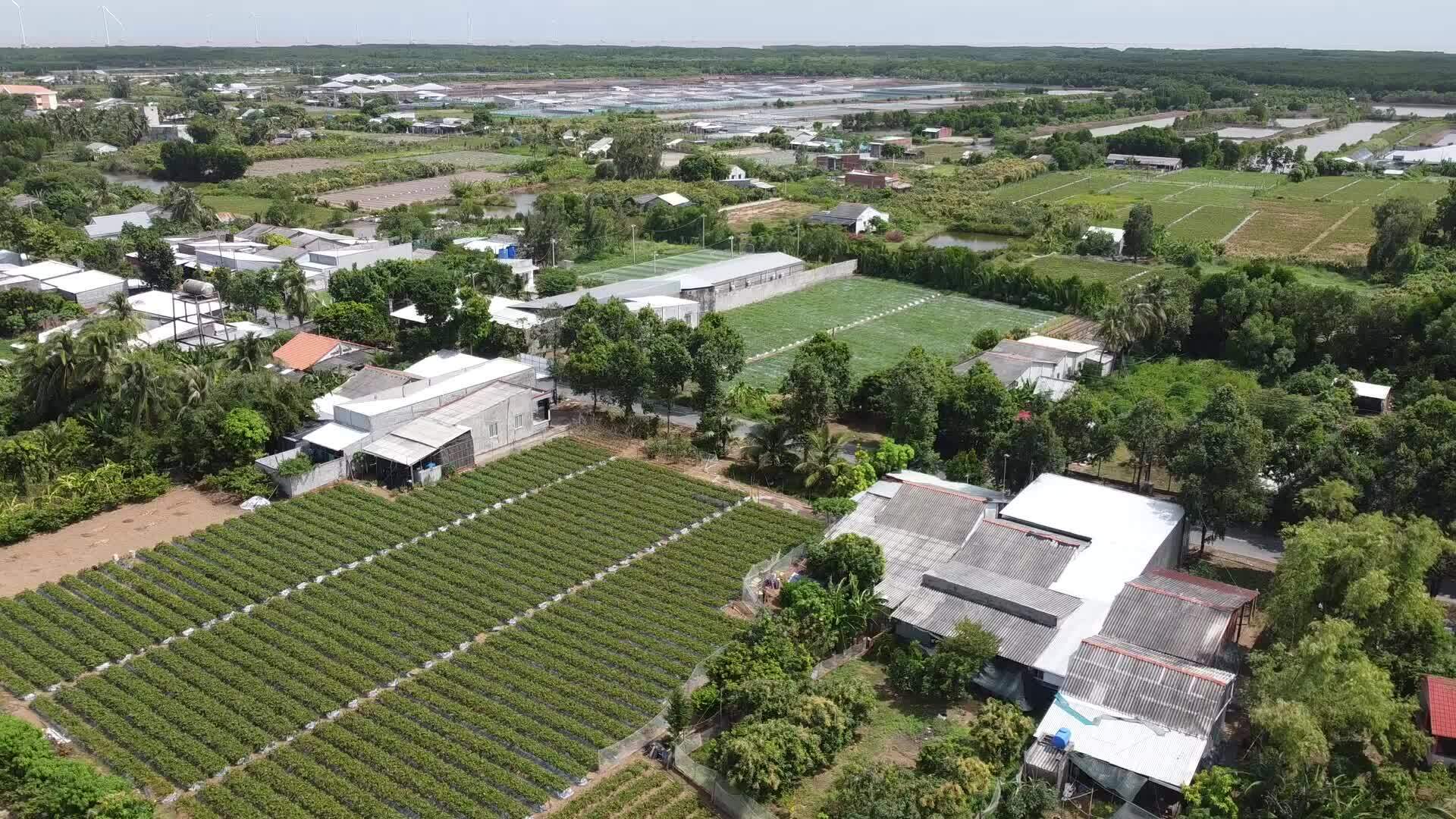Ben treHundreds of hectares of beans are beyond harvest, but farmers still try to stay in the fields because the purchasing price is too cheap, only 2,000-3,000 per kilogram, leading to the risk of loss.
The field of jicama (called cassava in the South) of nearly 180 hectares in Thanh Hai commune (Thanh Phu, Ben Tre) has been over-plucked for nearly two months now. Instead of the bustling scene of traders coming to deposit deposits and workers harvesting beans and loading them onto trucks like in previous seasons, this year the harvest days became deserted.
Mr. Doan Hoang Giang, 32 years old, a local trader, said that this time last year, every day he bought about 60-70 tons of jicama and transported it to the wholesale market in Ho Chi Minh City. However, because this year the price of this item is low and people are not willing to sell it, so the quantity of goods is only about half.

The beans are nearly 2 months past harvest in Mr. Nguyen Van Tung’s field. Image: Hoang Nam
Mr. Nguyen Van Tung, 57 years old, has 3,000 m2 of land growing jicama for nearly 20 years. Every year, from the 4th lunar month, gardeners sow the jicama crop. After 4 months of harvesting, they will plant two more watermelon crops.
Last year, Mr. Tung let the land “rest” without growing jicama, only growing two melon crops. However, the price of melons then dropped and became unprofitable, so his family’s hopes were all for the next jicama crop. On average, his bean garden has a yield of 15-20 tons, with a price of 5,000-8,000 VND per kilogram. Each crop minus costs, Mr. Tung earns 70-100 million VND.
This year’s bean crop had a lot of rain, and low-lying areas in the fields were waterlogged, affecting productivity. In addition to the high price of fertilizers, this crop’s seed price doubled, from 300,000 VND to more than 600,000 VND per liter of seed. In addition to the labor of cutting cotton, buds, weeding, and harvesting labor, this crop cost Mr. Tung about 30 million VND in investment costs.

A gathering point for jicama tubers along the road waiting for traders to weigh them in Thanh Hai commune. Image: Hoang Nam
Two months ago, the price of jicama tubers was from 4,000-5,000 VND per kilogram. However, at this time the tubers are still small and the yield is low, so Mr. Tung does not sell them but focuses on taking care of the tuber garden. Then when harvest time comes, the price of cassava is only 2,000-3,500 VND per kg depending on the quality of the tuber, only 1/3 of previous years. At this price, gardeners break even to lose money.
More than a kilometer away, the 2,000 m2 bean garden of Mr. Vo Van Hien, 54 years old, is in the same situation of having to leave the tubers in the field waiting for prices. According to Mr. Hien, jicama can be left in the field for up to 3 months. However, worried about the tubers cracking due to the heat, he invested in an automatic irrigation system costing more than 5 million VND. The price of jicama is so low that for each harvest he has to hire dozens of workers, spending an additional 2-3 million VND.
“Currently, farmers can only hold out for about another month. After that, no matter how cheap the price is, they will have to sell them because it’s time to sow the melon crop,” Mr. Hien said.
The jicama growing area is more than 250 hectares in Thanh Hai commune. Video: Hoang Nam
Thanh Hai commune has more than 275 hectares of land for growing crops, of which the main crops are jicama and watermelon. In previous years, the highest price of jicama was about 10,000 VND per kg. However, the current consumer base is local small traders, so in the year the price hit bottom, only 500 VND per kg, many gardeners left the beans in the field and then used tractors to discard them because harvesting would result in a loss of money. labour.
With this year’s crop, farmers in the commune have currently harvested about 80 hectares of beans, while 177 hectares are left in the field waiting for prices, with a total output of about 5,300 tons. According to the Ben Tre Department of Crop Production and Plant Protection, in addition to Thanh Phu, Binh Dai and Ba Tri are also localities with large areas of jicama, the total area of the province is over 470 hectares.
“In the long term, the locality will discuss a plan to connect stable consumption hubs to make the lives of jicama growers less unstable,” said Mr. Duong Van Dinh, Vice Chairman of Thanh Hai Commune People’s Committee.
Hoang Nam




